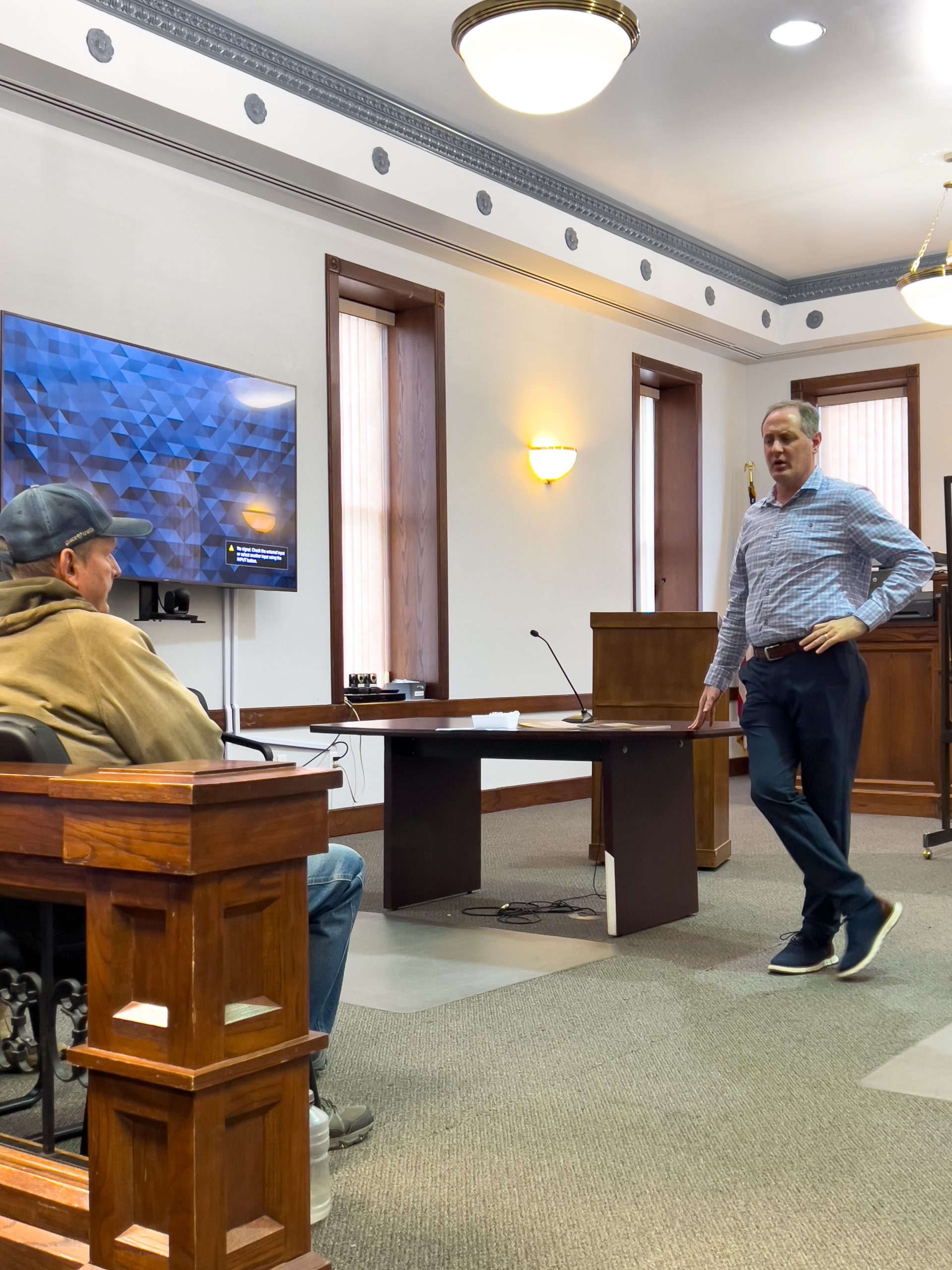Mann hosts listening session in Dodge City April 24

U.S. Rep. Tracey Mann, R-01, said out of 435 congressional districts in the country, his is the third highest ag producing district in the country.
He visited constituents in Dodge City, Kansas, April 24 at the Ford County Courthouse.
“We produced about $12.5 billion of ag products (last year),” Mann said.
The Big First district tops beef production, wheat production and sorghum production, and it ranks seventh for corn and 11th for dairy.
“We have other industry, but agriculture really drives our economy,” he said.
Education is also important in the district as there are more colleges and universities in the district than any other congressional district—with the University of Kansas, Kansas State University and Fort Hays State University, plus many community colleges.
“And lastly, an unusual thing about our district, we also have more hospitals, and more critical access hospitals,” he said. “Health care, access to rural health care, something that I spend a lot of time on and am pretty passionate about.”
Mann is a House Agriculture Committee member and serves on the Transportation and Infrastructure Committee and Small Business Committee. As for the ag committee, regulations coming out of Washington are a constant struggle.
“We’re constantly trying to work against (those) and be better for ag producers,” he said.
The farm bill is really taking up the committee’s time, and Mann said it’s the policy that “really impacts” ag producers. The current farm bill is set to expire Sept. 30.
“There’s an effort to do away with a stepped-up basis, which is the ability to pass farmland or small businesses one generation to the next with the step up for increasing the tax basis,” he said. “There have been proposals to do away with that as we’ve been working hard to make sure we preserve the stepped-up basis.”
Eighty-one percent of the farm bill is for food nutrition, and 19% is for “everything else,” Mann said.
“In the everything else category are things like crop insurance, conservation programs—the things that really impact our producers,” he said. “We’ve got to be very, very mindful of that as we’re working on this farm bill.”
Mann said he thinks it is 50-50 whether the farm bill will be wrapped up by Sept. 30.
“Part of it is the House is finally to a point to get a good bill brought forward,” he said. “The Senate has been very disinterested with us, until the Senate also comes forward with its version. It’s going to be hard. I do think that once the House moves on our version, we get it passed.”
The farm bill reauthorization is technically an amendment to 1930-era policy, according to Mann, and it will never expire since it will revert back to the 1930s version if a new bill is not passed.
“And no one Republican or Democrat wants to see that happen,” he said. “If there’s not a full five-year authorization, there will be some sort of an extension in some form or fashion.”
Mann reminded the audience that the food nutrition programs in the farm bill are mandatory spending, and crop insurance is also mandatory spending. He also said that the majority of lawmakers and candidates are telling him that they are generally satisfied with the current farm bill.
Some tweaks could be made, though, he said.
Mann also expressed concern about the national debt and reducing spending.
“We are now $34 trillion in debt,” he said. “These numbers get so big, it’s hard to comprehend.”
The most concerning thing about the debt level is how fast it’s growing. Mann said in 2010 the national debt was $13 trillion.
“We have added $21 trillion,” he said. “Two-thirds of this debt we’ve added just in the last 14 years.”
It’s also the first year in the history of the country that there will be more money spent on debt interest than principal, with more than $1 trillion going toward the interest alone.
“I think we all should be concerned about it,” he said. “We just have to get our fiscal house in order.”
Kylene Scott can be reached at 620-227-1804 or [email protected].
(Journal photo by Kylene Scott.)



